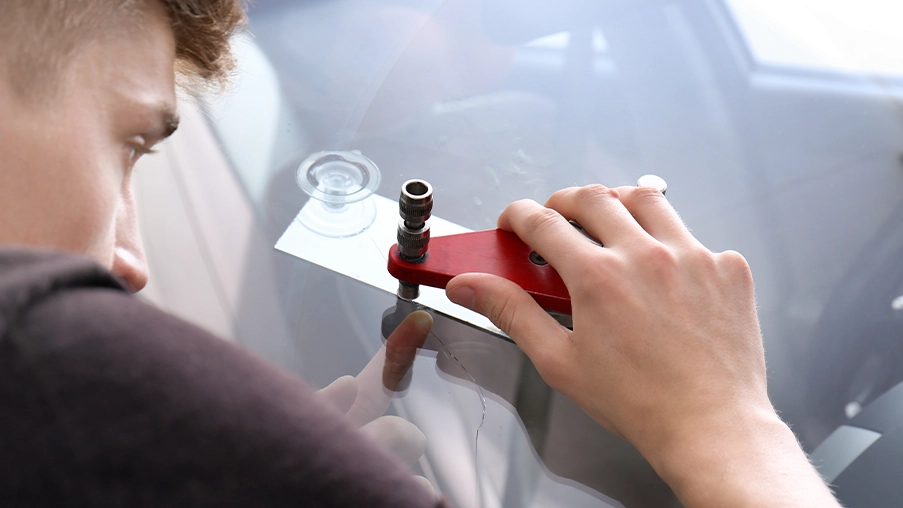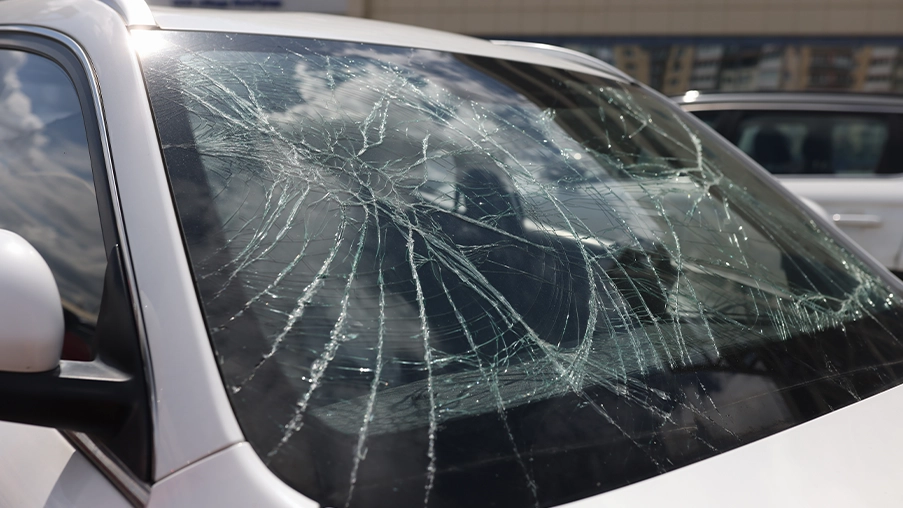Clear Coat for Cars: Benefits, Maintenance & When to Reapply
March 24, 2025
The paint job of a car isn’t just about aesthetics; it also serves as a protective layer against any environmental damage. A clear coat is transparent and is applied over the base paint to protect it from ultraviolet rays, dirt, and minor abrasions. If the clear coat is not strong, the paint may fade, oxidize, or peel off with time.
With regular maintenance and touch-ups, you can ensure your car’s long-lasting looks and protection. This blog discusses a clear coat for a car, its benefits, signs of wear and tear, and how to maintain it to enjoy long-lasting protection.
What is Clear Coat for a Car?
A clear coat for a car is a transparent layer applied on top of its paint layer. It shields the car from UV radiation, dirt, and minor scratches and adds gloss. Though it lacks colour, unlike the coloured base coat, it preserves the integrity of the paint.
Most cars have a clear coat to stop oxidation and fading. Just like regular washing and waxing, proper care helps prolong the effectiveness of the clear coat and, in turn, extends the car’s exterior.
How Clear Coat for a Car Protects Paint
Clear coating prevents a car’s paint from wearing by protecting it from harsh elements such as sunlight, rain, and debris. UV rays will eventually fade the paint, so a clear coat minimizes its oxidation and, subsequently, discoloration.
Besides, it repels dirt and minor scratches, thereby lessening the damage caused by wear and tear from daily usage. Regular maintenance keeps the car well protected from harsh weather conditions and environmental pollutants.
Do All Cars Have a Clear Coat?
Except for a few cars, especially older models, most new cars nowadays come with a clear coat of paint to add shine and protection to the paint. Some classic cars and inexpensive ones have single-layer paint, which does not include a clear coat.
Cars without a clear coat need polishing and waxing on a more regular basis to keep their shine longer and to prevent degradation of the paint. If your cars do not have a clear coat, consider applying it to increase durability.
Signs Your Car’s Clear Coat Is Wearing Off
The clear coat on a car can deteriorate over time due to sun exposure, extreme weather, and improper washing methods. Dull or faded paint, rough regions, flaking, or white spots on the surface can identify wear. Ignoring treatment may exacerbate the damage by exposing the base paint to oxidation and corrosion.
Regular polishing and waxing help to slow degradation. For severe peeling, a clear coat or repainting can restore the shine and prevent further damage.
Does Your Car Need a New Clear Coat?
The clear coat paint for cars will require re-application if it starts peeling, fading, or cracking. The base paint becomes exposed to environmental damage when the clear coat wears out, leading to expensive repairs.
Professional polishing and waxing may help restore the shine to minor damages; while sanding and reapplying a new clear coat would be required for more severe damage to avoid oxidation. You can quickly identify the necessity of a clear coat restoration through regular inspections of the vehicle.
Choosing the Right Clear Coat for Your Car
Durability, protection, and finish are all important considerations when picking the best clear coat for your vehicle. A high-solid clear coat provides greater gloss and long-term durability, but an expert must apply it. On the other hand, low-solid clear coats are less expensive but may wear out faster.
UV resistance and ceramic coating can provide additional benefits for increased durability. For the best advice on which clear coat paint to use to achieve that glowing finish and body protection, consult an expert.
Clear Coat Maintenance Tips for Long-Lasting Protection
Maintaining a clear coat is important for adding shine and protecting the paint from damage caused by the environment. Regular care helps avoid fading, peeling, and oxidation, keeping your vehicle looking new for years. Here are some practical ways to keep for a lasting protection:
- Regularly wash your car with pH-balanced car shampoo to remove dirt before it builds up.
- The application of high-quality car waxes every few months can provide further protection against UV rays.
- Never use an automatic car wash with stiff brushes that can scratch your car’s surface.
- Always Park under shades and use car covers to reduce sun exposure.
- Treat chips and small scratches promptly to prevent additional damage.
- You can use ceramic coatings for extra protection and long-lasting durability.
Conclusion
If you don’t want to ruin your car’s paint, a clear coat can help protect it from UV radiation, oxidation, and environmental damage. Regular washing, waxing, and professional maintenance at appropriate intervals will extend its lifespan. If your vehicle’s clear coat is peeling or wearing away, reapplication might help restore the protective barrier.
NuVision Auto Glass specializes in ADAS calibration, windshield replacement, and repair. For dependable auto glass and car protection that will increase your car’s life, contact us today!
FAQs
- How much does a clear coat cost on a car?
The cost varies based on quality and application method but typically ranges between $750 and $2,000 for a full car.
- What does a clear coat do for a car?
A clear coat provides a protective barrier over the paint, preventing fading, oxidation, and minor scratches while enhancing shine.
- How long does a clear coat on a car last?
A well-maintained clear coat of paint for a car can last five to ten years, depending on exposure and care.
- Is it better to wax or clear-coat a car?
A clear coat offers long-term protection, while waxing adds an extra layer of defence and enhances the vehicle’s gloss.




